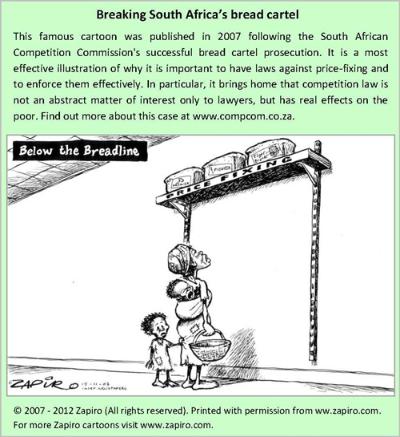Concurrence
Competition and poverty reduction
|
Over a billion people live in absolute poverty worldwide and poverty exists in all countries, no matter how rich. The poor are often excluded from the very competitive markets that many of us take for granted. Not only do they have lower incomes, but they may even pay much more for some basic services. For example, studies in the United States have found that the poor often pay more for long distance telephone calls and for financial services. How can we ensure that competitive markets serve these people as well as they do the more affluent consumers? And how can those same competitive mechanisms promote pro-poor growth and help to reduce poverty levels everywhere?
The OECD Competition Committee is engaged in exploring the effects of competition enforcement on poverty reduction and examining how competition policy can help reduce poverty by stimulating employment, innovation and growth.
|
GLOBAL FORUM ROUNDTABLE REPORT Competition and poverty reduction provided the main focus for discussions at the 2013 Global Forum on Competition. Downloads: Compilation of all documents (pdf), including the executive summary with key findings, country and expert contributions, background note and summary Summary of discussion | Compte rendu Background note | Note de référence Closing remarks by OECD Secretary-General LATIN AMERICAN COMPETITION FORUM Session one the 2012 forum explored the effects of competition enforcement on poverty reduction focusing on the impact of competition in markets for essential goods and services. See the background note by the Secretariat. SEE ALSO Inequality: A hidden cost of market power Cartels and anti-competitive agreements Competition and macroeconomic outcomes factsheet Competition issues in the Food Chain Industry Competition & Commodity Price Volatility (2012) Other OECD work on poverty reduction DAC Guidelines on Poverty Reduction All Competition Policy Roundtables
|
COMPETITION AND POVERTY REDUCTION
Global Forum on Competition 2013 - www.oecd.org/competition/globalforum
|
Compilation of all documents (pdf) Call for contributions | Appel à contributions Background note | Note de référence Summary of discussion | Compte rendu Closing remarks by OECD Secretary-General
Contributions from panellists Eleanor FOX (Professor of Trade Regulation, New York University School of Law, United States) David LEWIS (Executive Director, Corruption Watch, South Africa) Paper: English | Français Susie LONIE (Mobile Payments Consultant, SJL Consulting Services Ltd, United Kingdom) Hassan QAQAYA (Head, Competition Law and Consumer Policies, International Trade Division, UNCTAD) ppt Alan WINTERS (Professor of Economics, University of Sussex, United Kingdom) |
Contributions from participants
|
||||
Documents connexes
